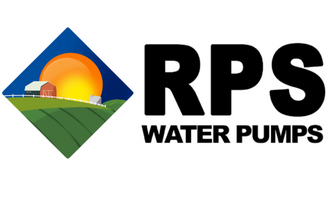

Answering Your Water Pump Questions
with RPS Engineer Mike
Can a well pump last 30 years?
Well pump installs and replacements can be expensive, so we completely understand wanting to get your money’s worth in terms of lifespan. With high quality materials (i.e 304 stainless steel and no moving brushes), well pumps can often last from 10-20 years. 30 years is a possibility, but it is at the far end of the range for pump lifespan.
Anecdotally when I chat with customers who are looking to replace a well pump, less than 10 percent will have pumps older than 25 years. In my experience most are looking to replace pumps around the 10-15 year range. Since our pumps are expertly crafted, we expect an average lifetime around 15-20 years, though there are some practices you can make use of to ensure you keep your pump running as long as possible.
Pump lifespan is heavily dependent on the amount of cycles it goes through. Reducing cycle speed is the key way to keep your pump running for years. To prevent cycling, you may want to increase your pressure tank size so the pump is filling up larger volumes of water each time it switches on. A properly adjusted well pump pressure switch can also help control cycling. This will mean the time it takes for the pressure tank to call for water from the pump extends. Alternatively, if you have a storage tank setup, you can adjust your tank shut-off float so that water is called when a sufficiently high volume has already been outputted from the storage tank. Instead of constantly topping off at 90% volume, for example, you could top off at 50-70% of volume instead.
Another thing to keep in mind is that you have to consider the balance between pump lifespan and efficacy. Over time a pump will naturally have wear and tear; if you’re noticing a decrease in pump PSI or GPM after the 15 year mark, it’s up to you to determine how long you want to wait until replacing the pump. Some folks would rather put up with reduced efficacy and increased lifespan, but at a certain point in time, continually servicing the pump is going to be more trouble than it's worth. That may not be at the 15-year mark; it could be the 25 or even 30-year mark, but eventually you'll want to replace that pump. When it's time for a replacement, consider our range of high-quality residential water pumps.

One other thing to be aware of; not all wells are created equal. Let's say there are higher concentrations of sand, silt, clay, or minerals in your well, whereas your neighbor John has pristine spring water as a source. Any well pump will perform better in the spring water. In this scenario, there's no keeping up with the Joneses unless you change your water source. However, our deep well pumps are designed to handle various water conditions effectively. To ensure that your well water quality is as high as possible, you’ll want to make sure your pump is not placed too close to the bottom of the well, so that it doesn’t pick up excess debris. We recommend 20’ from the bottom. You’ll also want to make sure your well seal fits snugly so that leaves or other material don’t fall through.
At RPS, we believe quality of product and spectacular customer service go hand in hand. If you don’t believe a company can offer both, check out some of our reviews for yourself. We offer a free industry-standard two year warranty, where any manufacturing defects of any pump part can be replaced at no additional charge. Outside of warranty all replacement parts come at a system discount for old customers. We also offer a 30-day water assurance money-back guarantee if you’re not happy with your system. Our full warranty can be easily found here, written in simple language so that all us non-lawyer types can understand it.
If you still have questions about our pump quality or expertise, you can always call us at (855)-560-5670 or email us at help@ruralpowersystems. Oftentimes we’re our customers’ first experience with a U.S. based online retailer, and we want to make sure that process is as pleasant as possible. Our specialists are friendly and knowledgeable, with no sales pressure to buy right away. You can always get a head start by browsing our pump models or accessories as well, until then we look forward to working with you!
Take the Next Step to Water Independence
Learn More About Water Pumps
-
 If you’re considering replacing a well pump and it’s your first time, you may have questions about long it may take. We often say a full install only has to be a couple of hours, but is that actually accurate?Read now
If you’re considering replacing a well pump and it’s your first time, you may have questions about long it may take. We often say a full install only has to be a couple of hours, but is that actually accurate?Read now -

How many GPM is a good well pump?
Water needs can differ significantly depending on circumstances, and you may need a submersible well pump with a significantly higher or lower flow rate, depending on household size, irrigation needs, and sprinkler use.Read now -

Can you put in too big of a pressure tank?
When it comes to sizing a well pressure tank, there really isn’t an upper limit as to how big of a tank you can put in. There are some pros and cons to different size pressure tanks, and they can have an impact on the lifespan of your pump.Read now





